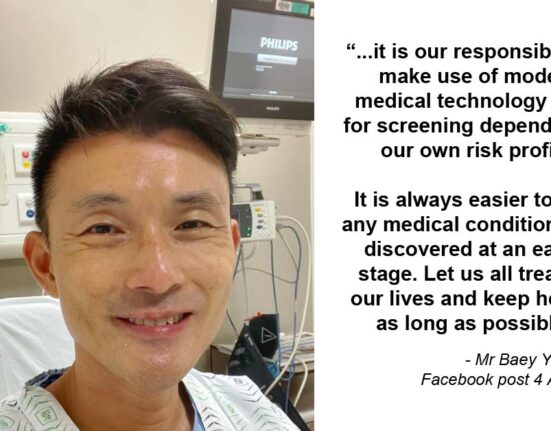A CT Calcium Score test is a form of health screening for heart disease. It uses computerized tomography (CT) imaging to detect the amount of calcium in the walls of the coronary arteries. The coronary arteries supplies oxygen and nutrients to the heart and when a plaque (build-up of fat and other substances) accumulates in the walls of the arteries, it can narrow or block the blood flow to your heart.
A high coronary calcium score suggests a higher chance of narrowing in the coronary arteries and a higher risk of coronary heart disease or future heart attack.
Know more about the symptoms and causes of coronary heart disease here.
Who Should Get A CT Calcium Score Test
Currently, the CT calcium score test, a form of health screening for heart disease is recommended for individuals between the ages 40-60 in the intermediate risk range or people at increased risk for heart disease. These are those with:
- History of high cholesterol
- History of diabetes
- History of high blood pressure
- Obesity
Low-risk individuals with family history of heart disease should also consider getting a CT calcium score test for further assessment.
What Happens During A CT Calcium Score Test
During your health screening for heart or CT calcium score test, a CT scanner will take multiple X-ray images of your heart in different angles.
At your appointment, you may be asked to change into a hospital gown and lie down on a scanning table that will eventually be moved into a donut-shaped scanner. A technologist will clean three small areas in your chest wherein men are expected to have these areas shaved prior the test. Sticky patches with electrodes will then be placed in these cleaned areas to monitor your heart’s electrical activity.
A CT scan typically takes only a few minutes and after the test, the taken images will be analysed to determine the amount of calcified plaque in your coronary arteries. Your result will be reported in numerical score.
What Do The Calcium Scores Mean?
Your doctor will discuss the scores of your test. In general, you may use the guideline below to know the meaning of your score, risk, and potential measure to take.
| Score | Plaque Evidence | Risk for Heart Attack | Measures to take |
| 0 | No evidence of plaque. | Low risk but not totally zero. | Provides you with a window of opportunity to address health conditions and make lifestyle changes. |
| 1-10 | Minimal evidence of plaque. | Low risk for heart attack. | Prevention strategies and potential lifestyle changes should be discussed by your doctor in order to keep the risk in low. |
| 11-100 | Mild evidence plaque. | Moderate chance of heart attack. | Your doctor may advise treatments in addition to lifestyle changes. |
| 101-400 | Moderate evidence of plaque | Moderate to high chance of heart attack. | Treatment and lifestyle changes are needed to reduce cholesterol levels. |
| Over 400 | Extensive evidence of plaque. | High chance of heart attack. | Intensive healthy lifestyle changes and pharmacological interventions are needed to reduce the risk. |
Where Do I Get A Health Screening For Heart Disease, Particularly A CT Calcium Score Test
If you are planning to do a health screening for heart disease or CT calcium score test, Health365 in partnership with trusted healthcare providers in Singapore offers health screening packages for heart disease. Discover the available packages with CT Calcium Score test at our online shop.
Protect against cancer, cardiovascular disease, and other chronic diseases with regular health screening. Compare and shop for health screenings from Singapore and regional healthcare providers at a single convenient platform - shop.health365.sg
This article is informative only and is not intended to be a substitute for professional medical advice, diagnosis, or treatment, and should never be relied upon for specific medical advice.






















































